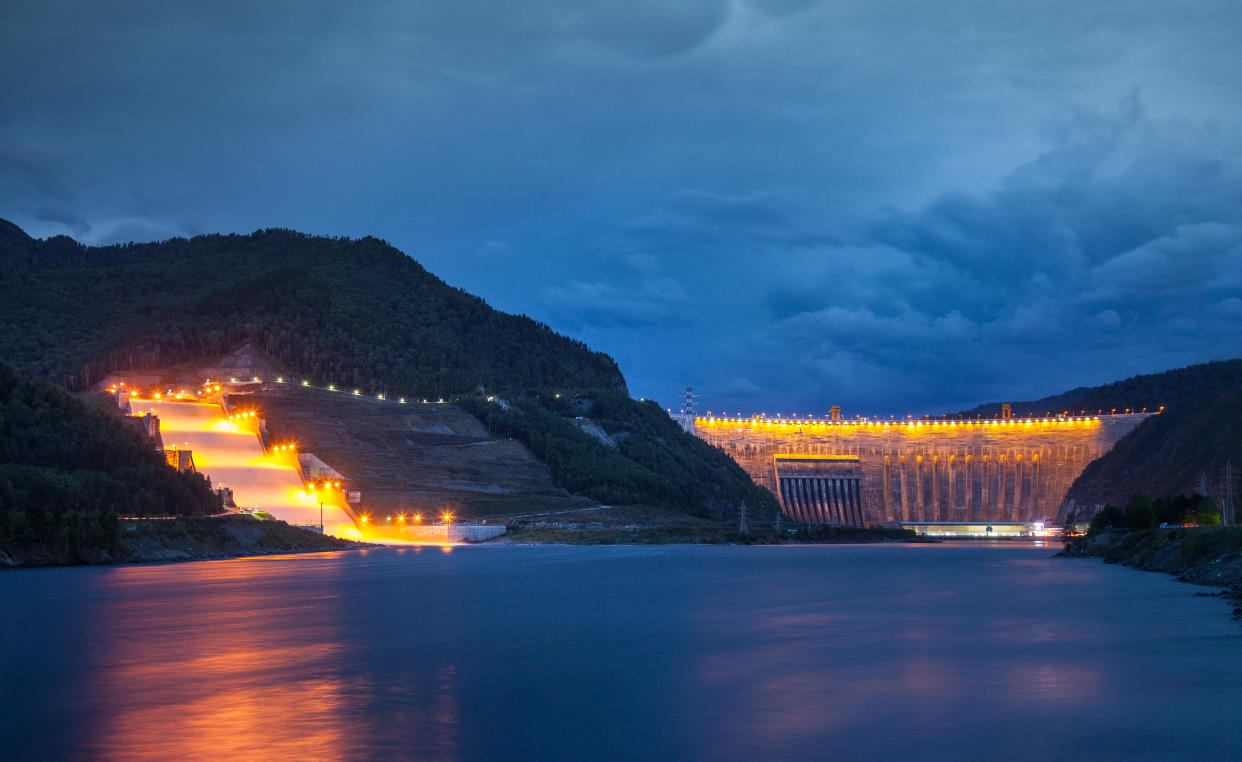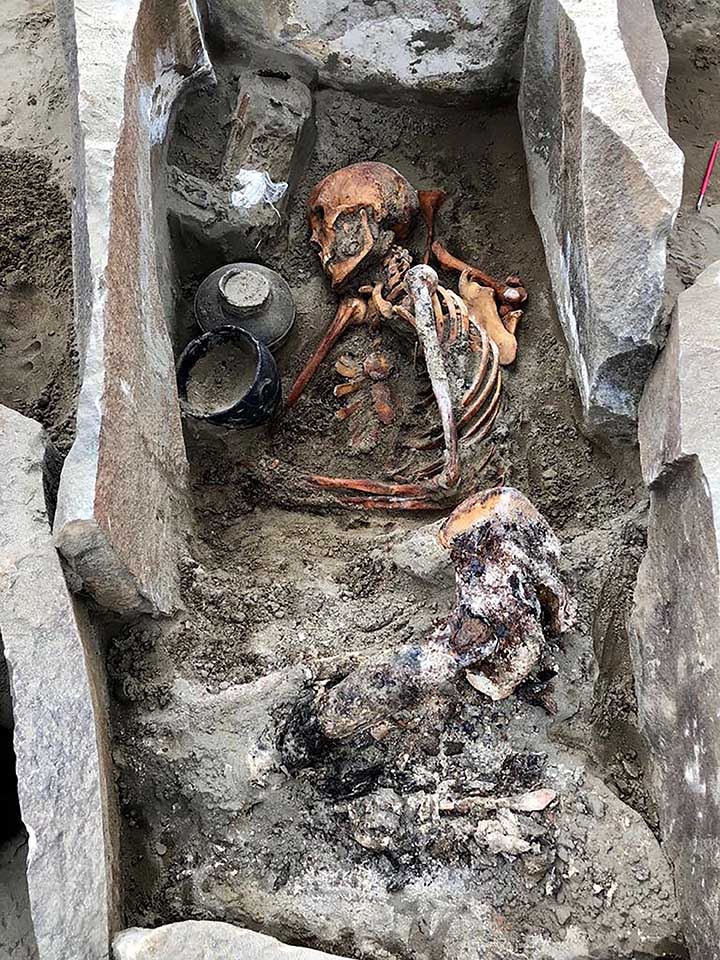‘Russia’s Atlantis’ emerges from sea with tombs dating to time of Genghis Khan

A unique archaeological site described as ‘Russia’s Atlantis’ has emerged from beneath the water of a man-made reservoir - with over 100 undisturbed, ancient graves.
The graves are found in the ‘Sayan Sea’, the Siberian Times report, and date from the Bronze Age up until the time of Genghis Khan.
They appear from the water just once a year, with scientists able to work from mid-May until the end of June, upstream of the Sayano-Shushenskaya Dam.
Researchers have found unique relics including a 2,000 year old mummy dressed in silk, described as a ‘sleeping beauty’, the Siberian Times reported.

‘This site is a scientific sensation’, said Dr Marina Kilunovskaya from the St Petersburg Institute of Material History Culture, who leads the Tuva Archeological Expedition.
‘We are incredibly lucky to have found these graves of rich Hun nomads that were not disturbed by robbers.
‘We discovered 110 burials at the Ala-Tey burial site, which is usually 15 metres underwater.
‘Another site which was made at what is now the Sayan Sea shore is getting quickly destroyed by crumbling soil.
‘It is called Terezin, and there we found 32 graves.’

 Yahoo News
Yahoo News 

